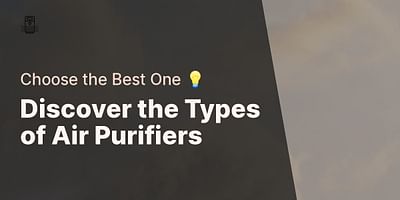Howard is a seasoned HVAC technician with a specialized knowledge in air purifiers. With over a decade of hands-on experience in the industry, he has assisted numerous clients in enhancing their indoor air quality. In his free time, Howard is an avid basketball player and enjoys catching up on his favorite movies.
As an expert in air purifiers, I often get asked about the differences between various air purifying technologies. One common question is about the difference between ultrasonic air purifying technology and HEPA filters. To help you understand the key differences, let me explain how each technology works and their respective advantages and disadvantages. [source]
First, let's talk about ultrasonic air purifying technology. This type of air purifier uses high-frequency sound waves to create tiny water droplets that help remove airborne particles from the air. The sound waves cause the water molecules to vibrate, producing a fine mist that can capture and remove pollutants like dust, pollen, and smoke. The mist then settles on surfaces, where it can be easily wiped away or evaporated. [source]
One advantage of ultrasonic air purifiers is that they can be very quiet, as the sound waves are typically beyond the range of human hearing. They also don't require replacement filters, which can save you money in the long run. However, ultrasonic air purifiers are not as effective at removing smaller particles, such as viruses and bacteria, as other types of air purifiers. Additionally, they can sometimes produce excess moisture, which may not be ideal for those living in humid environments. [source]
Pros and Cons of Ultrasonic Air Purifiers
| Advantages | Disadvantages |
|---|---|
| Very quiet operation due to sound waves beyond human hearing range | Not as effective at removing smaller particles like viruses and bacteria |
| No need for replacement filters, saving costs in the long run | Can produce excess moisture, not ideal for humid environments |
On the other hand, HEPA filters (High Efficiency Particulate Air filters) are a more traditional and widely-used air purifying technology. These filters are made from a dense network of fibers that can capture particles as small as 0.3 microns in size, including dust, pollen, mold spores, and pet dander. HEPA filters are highly effective at removing airborne particles and are often recommended for allergy sufferers and those with respiratory issues. [source]
The main advantage of HEPA filters is their ability to capture a wide range of pollutants, including smaller particles like viruses and bacteria. They are also less likely to produce excess moisture, making them suitable for use in various environments. However, HEPA filters do require regular replacement, which can be an ongoing expense. Additionally, some air purifiers with HEPA filters can be noisy, depending on the fan speed and design. [source]
In summary, ultrasonic air purifying technology is a quieter and filter-free option that uses sound waves to remove larger airborne particles, while HEPA filters are a more traditional and effective method for capturing a wide range of pollutants, including smaller particles. Your choice between the two will depend on your specific needs, preferences, and budget. [source]















